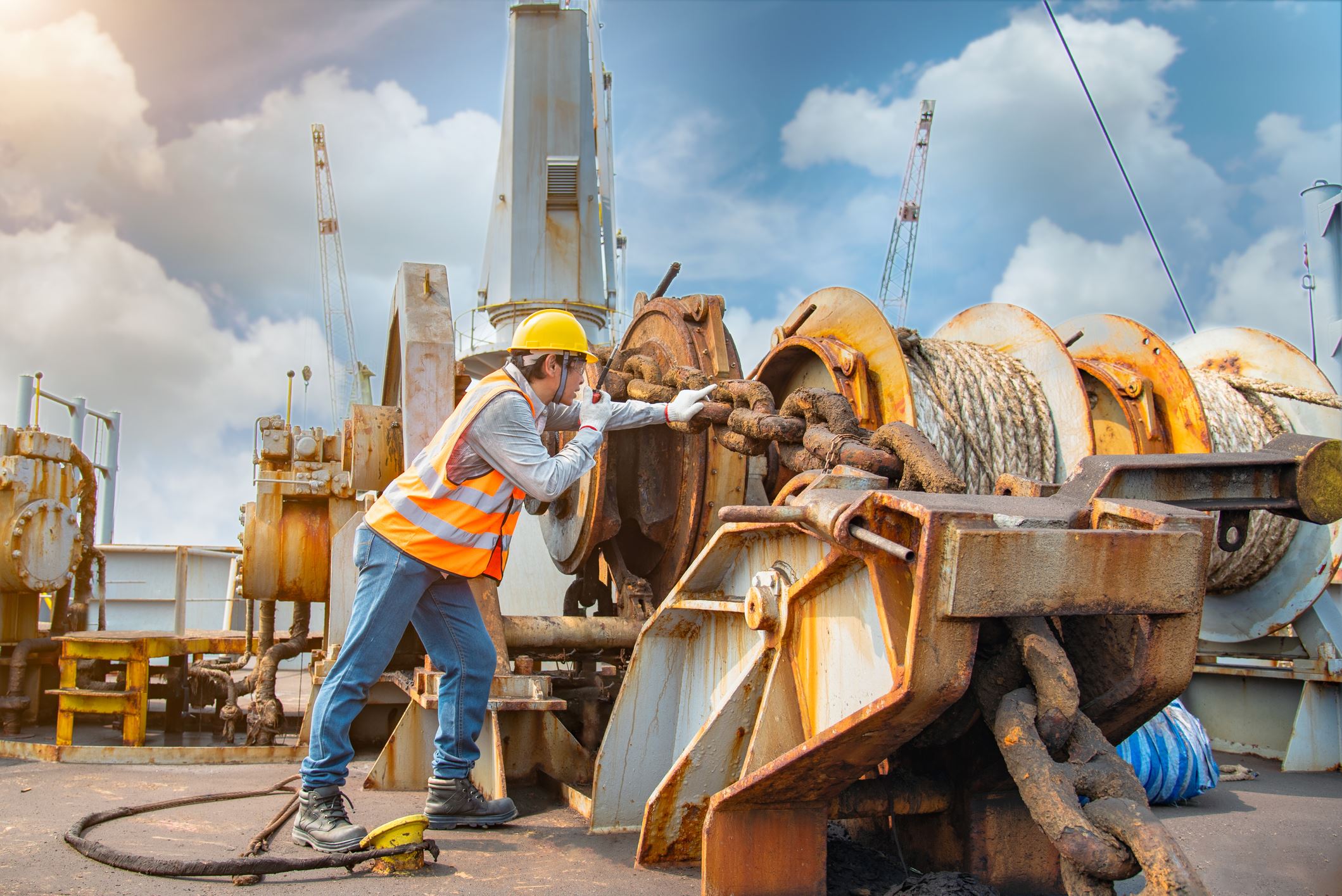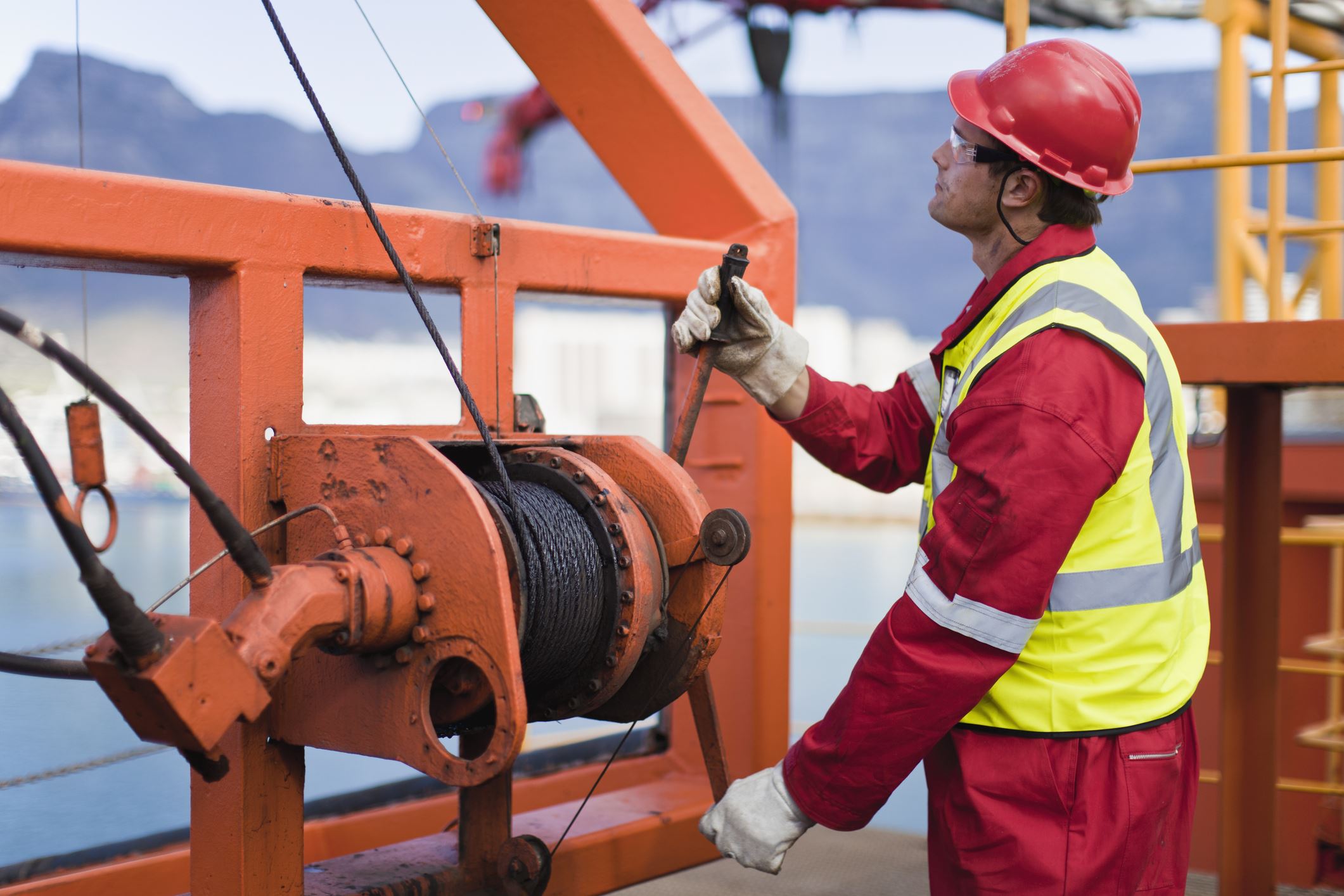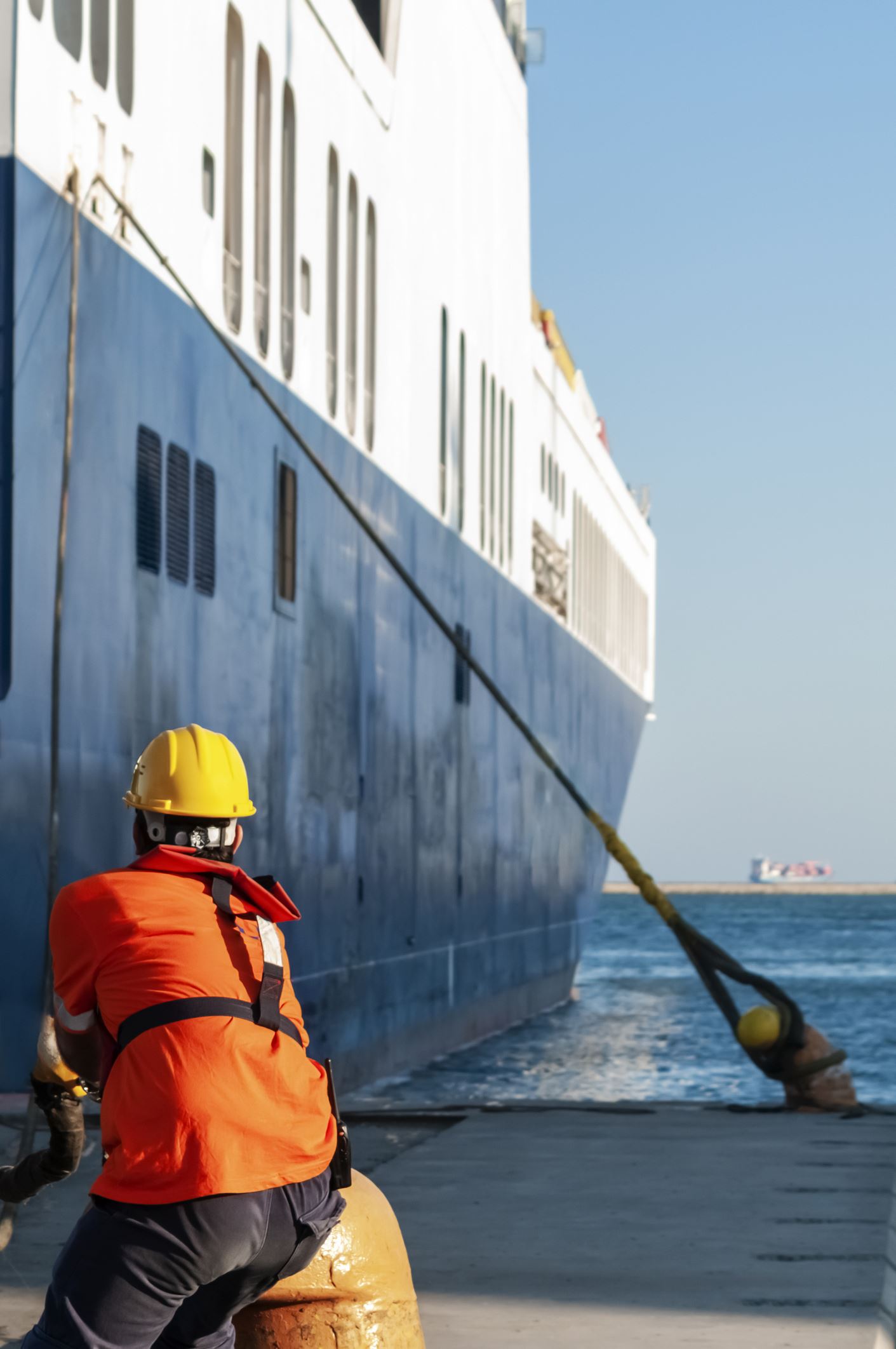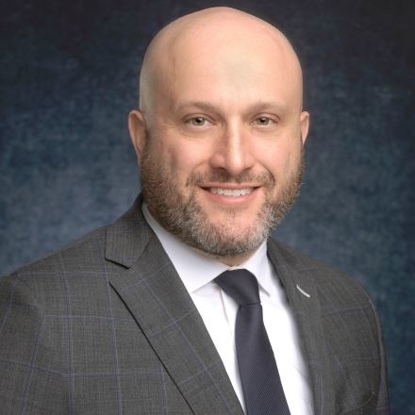
Virginia Maritime Injury Lawyer
Fighting for Victims & Workers Injured in Maritime Accidents
Injuries at sea or in maritime work environments are governed by a complex set of overlapping regulations and laws. Determining which law applies when you are hurt requires a knowledgeable and experienced maritime lawyer.
At Kalfus & Nachman, our Virginia maritime injury attorneys have been helping maritime workers injured at sea, on docks, and on shore for more than 30 years. We have extensive experience litigating Jones Act claims, third-party injury claims, and other actions under various maritime laws, and know how to help injured workers and families level the playing field with powerful defendants. If you have questions about a maritime injury case, we want to help.
Our lawyers handle maritime accident cases throughout Virginia and beyond, and have offices centrally located to each of the Port of Hampton Roads locations: Norfolk International Terminal, Portsmouth Marine Terminal, Newport News Marine Terminal and APM Terminals. For a FREE consultations, call (855) 880-8163 or contact us online.
How to Determine if You Can File a Maritime Lawsuit in VA
Because there are many different maritime laws that apply to offshore and maritime injuries, our attorneys will need to evaluate your situation to identify which laws are applicable to your case. Examples of questions we will ask:
- Were you injured on the vessel as a passenger, worker, or business invitee?
- Were you injured aboard the ship or on the dock?
- Is the ship privately owned or owned by the government?
- Which body of water did the injury occur in?
- Where is the home port of the vessel and where was it traveling to and from?
- What type of vessel is it?
- What is your position aboard the vessel and the type of work you were performing?
- What are the particulars of how your accident happened, what equipment or crew members may have been involved, any other vessels that were involved, etc.
If you or someone you love suffered injuries in a maritime or offshore accident, the factors above will help determine which laws apply and how you can best pursue compensation. Our maritime attorneys have experience helping clients navigate claims filed under various laws, including:
- The Jones Act
- The Longshore and Harbor Workers’ Act
- The Limitation of Liability Act
- The Federal Tort Claims Act
- The general maritime law
- The Public Vessels Act
- The Suits in Admiralty Act
- Death on the High Seas Act
- The Clarification Act (MARAD claims)
- Virginia State Law
- Maryland State LawTypes of Maritime Compensation

At Kalfus & Nachman, our maritime attorneys have an intimate understanding of maritime and injury law and know how to help clients fight for compensation through various approaches. This includes seeking damages in cases involving the following situations:
- Maintenance & Cure
- Jones Act Negligence
- Unseaworthiness
- Fishing accidents
- Tug and barge accidents
- Dredging accidents
- Blue Water Seamen
- Third-party claims
- Pleasure boats and ferries
Give our office a call at (855) 880-8163 to get started. Our team is ready to help you today!
Maintenance & Cure
When a seaman or commercial fisherman gets hurt, he has the right to obtain maintenance and cure from his employer. Maintenance and cure, unlike a claim for damages under the Jones Act, is awarded regardless of fault for the injury, which is similar to workers’ compensation.
- Maintenance is the payment of living expenses, such rent or mortgage payments, utility bills, groceries, and incidentals.
- Cure is providing and paying for medical treatment, medical testing, prescriptions, etc.
Maintenance and cure continue until the seaman reaches maximum medical improvement. Often, employers are eager to see an injured worker reach maximum medical improvement, eliminating the requirement to pay additional maintenance and cure. It is not uncommon for employers to offer the help of nurse consultants and schedule appointments with company doctors.
Our maritime lawyers educate clients about their rights under the maintenance and cure provisions of general maritime law. We help injured seamen obtain the best possible medical care from the physician of their choice, making sure that the proper tests are conducted, and that the right diagnosis is made while the employer pays these medical expenses, as it is obligated to do.
Jones Act Negligence

The Jones Act was enacted in 1915 and amended in 1920 to allow seaman to bring a personal injury claim against their employer if the employer (or any agent, officer, or crew member) was at fault in causing or contributing to an accident and injury. The Jones Act covers all crew members working on a ship, rig, barge, crew boat, recreational boat, floating crane, tanker, tugboat, commercial fishing vessel, dredge, ferry. or just about any other type of watercraft used as a means of transportation on water.
Kalfus & Nachman has been representing Jones Act seaman for many years and is able to analyze your situation and advise you of your rights. Under the Jones Act and general maritime law, you are entitled to maintenance and cure (medical treatment and payment of living expenses) and unearned wages as well as payment for the injuries suffered, lost wages, loss of earning capacity, pain and suffering, disability, disfigurement, and other losses when the employer was negligent.
Our Jones Act attorneys at Kalfus & Nachman have successfully represented clients whose injuries were caused by the negligence of their employer, including:
- Improper operation of the vessel
- Failure to provide and maintain reasonably safe equipment
- Failing to exercise due care in selecting a competent crew
- Failing to prevent physical assaults by crew members
- Negligent hiring or training of crew members
- Negligent orders or instructions by supervisors, including excessive duty
- Operating in heavy weather
- Failure to correct known dangerous conditions or provide warnings
- Failure to make inspections of the vessel, equipment, and work
- Failure to provide adequate medical treatment
- Failure to consider a client’s physical limitations in assigning duties
- Failure to require the use of safety gear
- Failure to comply with industry customs and practices
Unseaworthiness
Under General Maritime Law, a vessel owner is required to maintain a seaworthy vessel. If any part of the vessel’s equipment or machinery is defective, fails under normal operation. or is otherwise not fit for its intended purpose, a crew member injured as a result may bring a claim for compensation.
Each vessel must have working and appropriate equipment for each employee. The vessel must also be a safe place to work and live for weeks or months at a time. It must follow Coast Guard rules and regulations as well as the ISM Code (International Safety Management) and OSHA regulations. If the vessel does not meet these requirements, it can be considered unseaworthy.
Kalfus & Nachman has successfully represented clients whose injuries were caused by unseaworthy conditions, including:
- The sinking of a vessel
- A weak block and tackle chain
- Leaking hydraulic and fuel lines and pipes
- Mistakes made by improperly trained crew members
- Undermanned crews (not assigning enough men to do the work)
- Defective equipment
- Failure to issue safety equipment
- Malfunction of winches, dredges, cables, hydraulics, and other equipment
- Unreasonably slippery and cluttered decks and obstructions on deck
- Unsafe ladders
- Improper packing of stores
- Failure of hatch covers
- Cables that snapped
Our lawyers have the resources and knowledge to investigate and pursue unseaworthiness claims. We work with experienced and qualified maritime safety experts to identify unseaworthy equipment and conditions, building a strong and detailed claim for our injured clients. If you have been hurt because of an unseaworthy condition on a vessel, we can help.
Fishing Accidents in Virginia

We help fisherman obtain compensation for injuries and file wrongful death claims for families whose loved ones died at sea. Our attorneys have successfully filed Jones Act and unseaworthiness claims filed on behalf of clients in all types of fishing industry occupations, including Captains, Mates, Engineers, and Deckhands. Our clients come to us from all types of fishing vessels, including:
- Scallop trawlers
- Clam boats
- Menhaden fishing boats (steamers and purse boats)
- Crab boats
- Shrimp boats
- Flounder fishing boats
Our clients have suffered injuries from winches, dredges, blocks, fishing nets, lines, and cranes, among other things. Poor maintenance or operation of equipment and a high-pressure environment contribute to a difficult workplace.
Virginia Tug & Barge Accidents
We are well equipped to deal with tug and barge accidents and complex tug and barge ownership issues. Frequently, the tug and barge have different owners, which makes determining the rightful owner a common question. Unless the tug and barge are married, there can be complicated lease and charter agreements.
At Kalfus & Nachman, we are prepared to work through these issues. We have the knowledge and resources to pursue a claim against the liable party after an injury to a crew member. We have experienced handling tug and barge accident cases involving:
- Frayed and weak lines that parted
- Tow lines that swept the deck
- Injuries caused by bad weather
- Leaks on deck from engine lubricants and hydraulics
- Collisions with a dock
- Unspooling of winches
- Handling heavy lines
- Leaving the vessel to get onto a dock
- Malfunction of winches
Dredging
Workers on dredging vessels are often unaware that they are usually covered by the Jones Act. This includes the dredge as well as the flotilla of support vessels. Even though dredging operations take place in shallow seas or inland waters and the vessels are not traditional, dredge workers are usually covered by the Jones Act. Working on a dredge is just as dangerous as other maritime occupations.
Dredge workers attempting to loosen blockages in the dredge pipelines often suffer serious hand and arm crushing injuries. We have been able to recover damages for many dredge workers and have successfully represented workers injured aboard crew boats being transported to and from the dredge.

Blue Water Seamen
Seamen working aboard vessels that travel in international waters, including grain ships, freighters, and tankers are crewed by the traditional blue water seamen. If you are injured aboard a vessel overseas, you need an experienced attorney to address the jurisdictional issues and determine the appropriate place to file your claim.
If you are injured aboard a United States government vessel (USNS, USS, CAPE, etc.), special rules apply, including a two-year statute of limitations for filing Suits in Admiralty and Public Vessels Act lawsuits. If you are on a ship operating for the Maritime Administration, there is an even shorter deadline to submit a complicated and mandatory claim before filing suit. Kalfus & Nachman is experienced in handling both private company and government ship claims.
Third-Party Claims for Longshoreman, Stevedores, and Shipyard Workers
Even though you may be employed as a longshoreman or other worker receiving workers’ compensation benefits under the Longshore and Harbor Workers’ Compensation Act or state Workers’ Compensation Act, you may have a maritime claim as well.
If your accident occurred aboard a vessel and it was the result of the negligence of the vessel’s crew or a dangerous condition on the vessel, you may be able to file a third-party maritime claim for the damages you suffered in addition to your workers’ compensation claim.
Our attorneys at Kalfus & Nachman have handled numerous third-party claims like this. Under maritime law, you may be entitled to payment of lost wages, loss of earning capacity, pain and suffering, disability, and other losses over and above your workers’ compensation benefits.
Pleasure Boats and Ferries
If you are a passenger aboard a pleasure boat, ferry, fishing charter, tour boat, or any other vessel like this, and you are injured because of the improper operation of the boat, a defective condition, defective equipment, improper seating, or lack of safety equipment, you can bring a claim against the vessel owner for your injuries and damages.
Our Virginia maritime injury attorneys at Kalfus & Nachman have successfully handled many cases where our clients were injured on pleasure boats, fishing charters, tour boats, and ferries.
Defeating the Limitation of Liability Act
The Limitation of Liability Act is a potential trap for injured maritime claimants. Vessel owners have a way to limit their liability (the amount of money they can be required to pay out for all claims) in maritime cases. The Limitation of Liability Act can be traced back to an English statute enacted in 1734 before corporate ownership and insurance were available to protect shipowners. It was intended to encourage investment in the shipping industry.
Although the reasons for having this law no longer exist, the Limitation of Liability Act remains. It allows a ship owner to file a lawsuit to limit the vessel owner’s liability to the value of the ship plus pending freight at the end of the voyage. If a vessel has sunk or has little value after a catastrophic accident, this means the vessel owner’s responsibility can be limited to little or nothing. The owners of the Titanic filed for limitation of liability after its sinking.
Limitation of liability actions can be difficult and procedurally challenging, with short time periods to file a claim. Jones Act cases brought in state court can be removed to federal court if the owner timely files a limitation of liability action in response to the Jones Act claim. If the ship owner has petitioned the court to limit its liability, you must act quickly. The Limitation of Liability Act normally imposes a very quick deadline to file both a response to the vessel owner’s lawsuit and a claim for your damages.
At Kalfus & Nachman, our maritime injury lawyers are among the few who have fought a limitation of liability action at trial.
We have successfully defeated Limitation of Liability lawsuits by filing the appropriate pleadings and stipulations to allow our clients to proceed with their personal injury lawsuits. In these cases, we have secured compensation for injured clients even when the vessel was at the bottom of the ocean.
Fighting Back Against Powerful Defendants
Our maritime accident attorneys have the resources and experience to help clients level the playing field with powerful defendants, many of whom are large and well-funded corporations that care more about profits than people.
In our time fighting for injured maritime workers and others injured offshore, we have successfully helped clients fight back against powerful defendants. Some examples include:
Case result
There are plenty of jobs that can be pretty safe as long as you take normal health and safety measures. But some jobs can be quite dangerous in nature and if you add being out to sea, an injury can become life-threatening really quickly and far from medical help.
Such is the case of one of our clients, a scallop fisherman who experienced a pimple that turned into a life-threatening condition while on the job on the high seas. A small pimple on the hand became infected and began to spread into his arm causing pain and inflammation.
Our client kept trying to deal with the ship’s captain, asking for medical help after the pimple began to make his hand swell. He was denied medical attention and told it would simply “go away.” When the swelling move into his arm, again he asked for medical help. But the Captain was in a great fishing area and didn’t want to lose money to bring in our client on what he thought was just a simple infection. It was not until yellow streaks appeared on the arm that the Coast Guard was called in. The yellow streaks were a sign of jaundice, which is very serious and a precursor to organ failure. Once he finally got the medical help he needed, the doctors confirmed that if he spent any more time out to sea he could have easily lost his life. We deal with a lot of maritime clients and understand the laws of vessels and those at sea. We can help answer any questions you may have. Watch the video now to learn more.
Call For a FREE Consultation: (855) 880-8163
Our Virginia maritime injury lawyers at Kalfus & Nachman represent clients in a range of maritime accident and offshore injury cases. If you have questions about a potential case and how our award-winning legal team can help, call (855) 880-8163 or contact us online for a FREE consultation.

How Is Kalfus & Nachman Different?
-
You Will Pay No Fees Unless We Win Your Case
-
We Have Recovered Millions of Dollars for Our Clients
-
Our Attorneys Are Well-Equipped to Fight Insurance Companies
-
We Have Successfully Handled Thousands of Cases Since 1979
-
We are a Full-Service Firm with Multiple Locations
-
Se Habla Español

Awards & Accolades

We Mean Business
Read Our Recent Case results
-
$10.9 Million Traumatic Brain Injury
-
$10.5 Million Truck Accident
-
$7 Million Auto Accident
-
$5.147 Million Truck Accident
-
$2.15 Million Premises Liability

Meet Our Team
Tell Them We Mean Business
-
 Paul R. Hernandez Attorney
Paul R. Hernandez Attorney -
 A.J. Kalfus of Counsel
A.J. Kalfus of Counsel -
 Stuart L. Nachman of Counsel
Stuart L. Nachman of Counsel -
 Richard F. Aufenger, III of Counsel
Richard F. Aufenger, III of Counsel -
 Jesse M. Suit III of Counsel
Jesse M. Suit III of Counsel -
 Thomas A. Fitzgerald, II Attorney
Thomas A. Fitzgerald, II Attorney -
 Seth D. Scott Attorney
Seth D. Scott Attorney -
 Christopher I. Jacobs Attorney
Christopher I. Jacobs Attorney -
 Michael J. Levens Attorney
Michael J. Levens Attorney -
 Colin P. O'Dawe Attorney
Colin P. O'Dawe Attorney -
 Neal C. Schulwolf Attorney
Neal C. Schulwolf Attorney -
 Deborah B. Vaughn Attorney
Deborah B. Vaughn Attorney -
 Michael Sternberg Attorney
Michael Sternberg Attorney -
 Olivia T. Donahue Attorney
Olivia T. Donahue Attorney -
 Brian A. Thomasson Attorney
Brian A. Thomasson Attorney -
 Jeffry A. Sachs Attorney
Jeffry A. Sachs Attorney -
 Gregory E. Camden Attorney
Gregory E. Camden Attorney -
 Gregory L. Sandler, Esq. Attorney
Gregory L. Sandler, Esq. Attorney -
 Massimo Morabito Attorney
Massimo Morabito Attorney



































-NT.2502271247084.png)